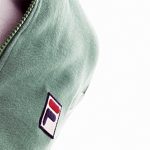Nike Inc. on Monday confirmed with Sports Executive Weekly that the company would stop selling Nike brand product to Sears this fall. The move isnt surprising, considering the recent merger between Kmart and Sears that puts former KMRT chairman Eddie Lampert in the drivers seat; but, Nike contends that it was all a part of the regular account review process.
“As of October 2005, Nike will no longer be selling product to Sears,” confirmed a NKE spokesperson Monday evening. “This was a brand decision following a routine account review and the recent expiration of Nikes agreement with Sears.”
While many may be surprised by the move, they should take into consideration that Nike hasnt always sold product to the retailer. Nike started to sell to Sears in the late 90s, a move that stung others that were already in Sears and turning mid-price product. Nikes entry into the retailer was part of a broader mid-market strategy that saw them take additional share from a number of brands that had been traditional players in the channel.
Some speculate that this move is an effort by Nike to ensure that Sears doesnt move shoes into Kmart. First, Nike can achieve the same thing by simply allocating product as they see fit, an option they and others employ on a regular basis. Second, Kmarts footwear departments are currently licensed to Footstars Meldisco unit, which has a 51% stake in the subsidiaries that run those departments. Kmart has attempted to sever the relationship, but the courts have recently held in favor of Footstar. The courts have gone as far as to rule that any stores that Kmart converts to a Sears format must continue to be serviced by a Meldisco licensed footwear department. The shift in format was expected to impact roughly 24 stores. It should also be noted that Lamperts ESL Investments groups owned approximately 9.8% of Footstar shares as of the date of Footstars most recent 10-K.
SEW sees this as part of a broader strategy for Nike, Inc. in their efforts to move beyond segmenting the Nike brand by channel to segmenting various Nike, Inc. brands by channel. This may well be the second step in a new corporate strategy to really focus on multi-brand management, a primary reason why Bill Perez was brought in as CEO.
The first big step was taken last month with the test launch of Nike Inc.s Starter footwear at Wal-Mart stores, a move SEW speculates will have a profound impact on the mid-market department stores. SEW expects that the next move may be to position another brand for the mid-market channel, while Brand Nike is positioned at Athletic Specialty, Sporting Goods, and Family Footwear.
Nike isnt the only company looking at this strategy either. Reebok recently launched NBA footwear under its Logo Athletic brand at Target stores. The goods are on the floor but neither company has received quite as much press as the Nike/Wal-Mart deal.
Whatever the reasoning, or the strategic importance to Nike, Inc., this move will have a significant impact on others. Reebok, adidas, and New Balance will suddenly find more open-to-buy in a channel they may be reluctant to feed any more aggressively. But some may need the volume as certain mainstay categories start to slow in other channels.
>>> Once again, Phil Knight sneezes and everyone else catches cold, or maybe an extra $50 mm in sales in this case















